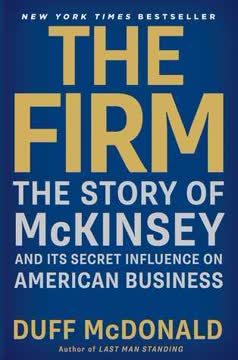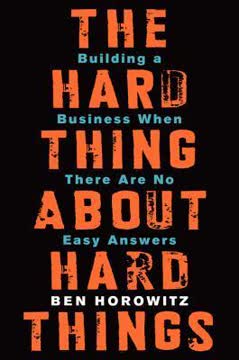Key Takeaways
1. Control the Deal
When going into any major deal, you need absolute control over some key element. If you want to win as an entrepreneur, never negotiate a deal unless you are essential to it.
Essential leverage. Peebles emphasizes that true power in a negotiation comes from controlling a critical component of the deal, whether it's the supply or the demand. Without this leverage, you are at the mercy of others, especially when seeking capital or partners. His first major deal, the 2100 Martin Luther King Jr. Avenue office building, exemplified this.
Political capital as control. Peebles leveraged his political connections, cultivated since his teenage years as a Congressional Page and solidified through supporting Mayor Marion Barry, to secure a city lease for the Anacostia property. When his financial partners tried to reduce his equity, his control over the city as the tenant—and thus the future cash flow—became his undeniable bargaining chip. This made him indispensable to the project's success.
Protecting your position. Even when economically weaker, acting from a position of strength is crucial. Peebles's lawyer advised him to be willing to walk away, knowing that his control of the tenant was more valuable than the partners' control of the property. This conviction, backed by his unique leverage, ensured he secured a 50/50 ownership split and became a multimillionaire from his first major venture.
2. Make Your Money Going In
The best risk to take in any deal is the early risk, when you can get in for the least. Do this and you make your money at the front end—which is where you want to make it—and not at the back end.
Early risk, maximum reward. Peebles advocates for identifying opportunities with significant "hairs" or problems that deter most investors, allowing for acquisition at a deeply discounted price. By taking on these early, often complex, risks, the profit is essentially locked in at the moment of purchase, rather than relying solely on future market appreciation or development success.
The 900 F Street acquisition. This principle was perfectly illustrated with the Washington Marriott project. Peebles acquired a 150,000-square-foot historic building from the Resolution Trust Corporation (RTC) for $5 million, despite its original loan amount being $16 million and its value once being $20 million. He was the winning bidder because others saw too much risk in the distressed property and the uncertain downtown market.
Profit at closing. Peebles's strategic maneuvering, including leveraging his Clinton connections to force the RTC to honor his low bid and negotiating a $1.25 million settlement from the University of the District of Columbia for a broken lease, meant he effectively made a $500,000 profit on the day of closing. He secured the property with no money down, demonstrating how front-end value creation can lead to substantial, immediate gains.
3. Being Lucky Means Being Ready
Opportunities come to everyone, but the winner is the one prepared to take advantage of them when they arrive. Put yourself in the right place at the right time, and you can seize these opportunities.
Preparation meets opportunity. Peebles defines luck not as random chance, but as the convergence of opportunity and preparation. His success often stemmed from being uniquely positioned—through knowledge, connections, or a specific skill set—to act decisively when a fleeting opportunity presented itself.
The North Capitol and G Streets project. This deal arose when Trammel Crow, a large real estate firm, needed a minority partner with strong political influence to take over a stalled city redevelopment project. Peebles's established relationships with Mayor Sharon Pratt Kelly and city council members made him the ideal candidate to secure the necessary city approval for the transfer.
Swift action and unique value. The essence of this deal was speed; the original bidders' deadline was approaching, and the city was ready to pull the plug. Peebles's ability to quickly secure city approval, leveraging his political capital, was the critical factor. He negotiated a 25% ownership stake and development fees without any capital investment, demonstrating how being prepared and ready to act can turn a time-sensitive situation into a lucrative, low-risk venture.
4. If the Key Doesn’t Work, Change the Lock
Not every deal succeeds. If you have failed with one approach, look at the elements. Don’t be afraid to do a reality check on any situation, and be flexible enough to change.
Recognizing a shifting landscape. Peebles learned that even successful strategies can become liabilities if circumstances change. After years of leveraging his political connections in Washington D.C. to secure deals, the political climate shifted, and his association with Mayor Marion Barry became a "stigma."
The arena lease debacle. Peebles's bid for a city lease to relocate employees for a new basketball arena was $58 million cheaper than the competition. Despite this, intense political pressure and media scrutiny, fueled by his opponent and the Washington Post, led Mayor Barry to withdraw the lease. This public betrayal and financial hit forced Peebles to confront a harsh reality.
Strategic pivot. The experience made Peebles realize that his D.C. model was no longer working. His political connections, once an asset, now created too high a profile and scrutiny, making it impossible to win deals fairly. This "epiphany" led him to seek new markets, specifically Miami, where he could apply his principles on a "blank slate" and adapt his approach.
5. Be a Bulldog on Details
Never underestimate the importance of dealing with key details yourself, especially final details, and especially when it comes to influencing people whose help or support you need.
No room for sloppiness. Peebles emphasizes that the final stages of any deal are often the most critical, and even minor oversights can derail years of effort. Success requires meticulous attention to every detail, from legal documentation to public perception.
The Royal Palm victory. Despite winning the initial selection committee vote for the Royal Palm project, Peebles faced a determined opponent and a biased committee chairman. He meticulously countered every attack and built his case:
- Architectural merit: He got the Miami Design Preservation League to endorse his firm's superior design, neutralizing a committee member's vote.
- Committee integrity: He exposed how a committee member was misled, leading to a letter urging the city commission to overturn the committee's recommendation.
- Competitor's flaws: He used PR to highlight his opponent's financial defaults and tax liens, severely damaging their credibility.
Personal engagement. Peebles personally met with every city commissioner, community leader, and media editor, ensuring his message was heard directly and accurately. This hands-on approach, combined with a meticulously crafted RFP and a scale model of the project, demonstrated his commitment and attention to detail, ultimately securing his victory by a single vote.
6. Listen to Your First Instinct
If your gut tells you that a deal is too risky or that your partners seem untrustworthy, pay attention, step back, and reflect. If you go ahead anyway, do so with extra protection, especially in terms of documentation.
The cost of ignoring intuition. Peebles recounts how his ambition to secure a major deal in San Francisco led him to override his lawyer's warning about a potential partner, Otho Green. Despite hearing rumors of Green's unreliability and overinflated ego, the allure of a deeply undervalued property blinded him to the red flags.
A partnership built on quicksand. Peebles provided the $400,000 deposit for Green's San Francisco hotel site, based on a hastily drafted memorandum of understanding. Almost immediately, Green attempted to back out of their agreement and negotiate with other developers, confirming his untrustworthy reputation. This forced Peebles into a protracted legal and political battle.
The ultimate betrayal. Green's double-dealing ultimately cost him the deal of a lifetime, as Mayor Willie Brown, disgusted by Green's speculation with city land, terminated his development rights. Peebles learned that while ambition is vital, it must be tempered with caution and a willingness to walk away or, at minimum, secure ironclad legal protections when dealing with questionable parties.
7. Get Inside the Others’ Heads
Understanding what the other parties want takes creative thinking, but ultimately it’s your key to successful negotiations. Find out what they want, and then give it to them!
Beyond the obvious. Peebles learned that successful negotiation often requires looking beyond the surface-level demands, like money, to uncover the deeper motivations of the other party. This insight allows for creative solutions that satisfy their true needs while securing your objectives.
The Bath Club's hidden desires. When the exclusive Bath Club was for sale, most bidders focused solely on offering the highest price. However, Peebles, with his wife Katrina's insight, realized the members weren't just seeking a financial windfall; they wanted to preserve their beloved club, its traditions, and their dignity, avoiding the embarrassment of bankruptcy.
Tailored solution. Peebles offered to preserve the historic clubhouse, allow members continued access to improved facilities, and immediately put up a large, non-refundable deposit to address their urgent cash flow problems. This unique offer, which addressed their emotional and practical needs beyond just the sale price, secured exclusive negotiation rights and ultimately won him the deal over numerous higher monetary bids.
8. Respond Quickly to Attacks
Call it the bully principle: If someone is attacking you, take them on immediately, even if the fight is a costly one. That will save you from all kinds of trouble later on.
Damage control and deterrence. Peebles learned that ignoring attacks, whether from the media or political opponents, only allows them to fester and gain traction. A swift, decisive response not only mitigates immediate damage but also establishes a reputation that deters future assaults.
The Bath Club political fallout. After Mayor Kasdin publicly betrayed Peebles by voting against the Bath Club rezoning (despite a prior commitment) for political gain, Peebles refused to let it slide. He immediately supported Kasdin's mayoral opponent and launched a counter-campaign, including direct mail and TV commercials, exposing Kasdin's misconduct.
Upholding integrity. While costly, this aggressive response sent a clear message: Peebles valued loyalty and would not tolerate broken promises or unfair attacks. This action, though controversial, ultimately forced Kasdin to reconsider his stance and ensured future political allies understood the importance of their word, demonstrating that fighting back can be a powerful deterrent.
9. Be the Last Man Standing
Most deals take far longer than expected. Often the difference between failure and success is simply the fortitude to endure and to see things through to the end.
The marathon, not the sprint. Peebles's journey with the Royal Palm Hotel was a testament to extreme perseverance. What began as a euphoric victory in June 1996 was intentionally dragged out by the city's chief negotiator, Arthur Courshon, for over two years, leading to escalating costs, expiring loan commitments, and partner defections.
Enduring adversity. Despite structural damage, contaminated soil, construction cost overruns, and the 9/11 impact on travel, Peebles refused to quit. He saw his professional image and personal reputation on the line. He continuously renegotiated with lenders and partners, even buying out Intercontinental's 49% stake and management contract using their own money, to maintain control and keep the project alive.
Fortitude pays off. The delays and setbacks, though painful, ultimately positioned Peebles to capitalize on a recovering market. His unwavering commitment allowed him to ride out the storm, eventually selling the Royal Palm for $127.5 million and turning what seemed like insurmountable obstacles into significant financial opportunities.
10. Turn Vinegar into Wine
Don’t despair when problems arise—they frequently create great opportunities. Be alert to these silver linings, especially as they relate to other parties and fellow travelers in a deal.
Obstacles as disguised opportunities. Peebles's experience with the Royal Palm taught him that every major setback, no matter how dire, often contains the seeds of a new, even more lucrative, opportunity. The key is to maintain a flexible mindset and actively seek these silver linings.
The structural and environmental "nightmares." The discovery of irreparable structural damage and contaminated soil at the Royal Palm site seemed like a disaster. However, because the City of Miami Beach had misrepresented the building's condition and indemnified Peebles, he submitted a $20 million claim. The city, wanting to avoid a cash payout, settled by waiving ground rent and, crucially, removing restrictions on converting the Shorecrest Hotel suites into condominiums.
Falor's shortfall, Peebles's gain. When the buyer, Falor Companies, faced an $11.5 million equity shortfall just before closing, it presented another crisis. Instead of letting the deal collapse, Peebles offered a loan, but extracted significant concessions: a permanent 12.5% non-dilutable ownership in the project (or 40% if the loan wasn't repaid) and approval rights over major decisions. This turned a potential deal-breaker into an additional $19-57 million profit opportunity.
11. Use the Power of Good Partnerships
Entrepreneurs are the gunslingers of capitalism and generally like to go it alone. But if you can find a good partner, one with energy, intelligence, and integrity, he or she can profoundly amplify your power.
Strategic delegation. Peebles learned that while control is paramount, it doesn't mean doing everything yourself. For the Lincoln Road Project, he recognized his limitations—being consumed by the Royal Palm and having a high political profile—and sought a trustworthy partner to lead the charge.
The Scott Robins alliance. Peebles partnered with Scott Robins, whom he described as honorable, ethical, and politically well-connected. This allowed Peebles to act as an advisor, leveraging his experience and connections, while Scott managed the day-to-day operations and public-facing aspects of the bid. This partnership freed up Peebles's time and mitigated his political exposure.
Amplified success. The partnership with Scott, and later with LNR/Comras, proved immensely profitable. Peebles invested minimal initial capital and no management time, yet earned a $10 million profit from the sale of the office building. This demonstrated that a well-chosen partner, with aligned interests and complementary strengths, can significantly amplify an entrepreneur's reach and financial returns.
12. Seeing Value Is Everything
The hallmark of the entrepreneur is to see value that other people do not see or have overlooked. Even when lots of people are presented with the same deal you are, few can see its hidden value.
The overlooked diamond. Peebles's acquisition of the Pacifica quarry site perfectly encapsulates the entrepreneurial ability to perceive hidden value where others see only problems or failure. This 87-acre oceanfront property, zoned for 2.1 million square feet of commercial use, was abandoned by Trammel Crow after they failed to secure residential zoning via public referendum.
Unlocking commercial potential. While Trammel Crow focused solely on residential development, Peebles recognized the immense, untapped value in the existing commercial zoning. Despite the post-9/11 hospitality slump, he envisioned a luxury resort hotel, wellness center, and high-end outlet mall, a vision that would generate millions in bed taxes and thousands of jobs for the revenue-strapped community.
Profit from foresight. Peebles acquired the property for $7.5 million, which was appraised at $85 million without any rezoning or improvements. This immediate $77.5 million paper profit, and the subsequent long-term development potential, underscored his unique ability to look beyond current market conditions and past failures to see the inherent, often overlooked, value in a "beaten up" asset.
Last updated:
Review Summary
The Peebles Principles receives high praise from readers, with an average rating of 4.29 out of 5. Reviewers appreciate Peebles' practical advice, transparent storytelling, and relatable path to success. The book offers valuable insights on thinking bigger, networking, and navigating the real estate industry. Readers find the principles applicable to aspiring entrepreneurs and experienced professionals alike. Many highlight the book's readability and potential for multiple re-reads. Some reviewers note the author's use of political connections in securing deals, while others emphasize the book's motivational impact on minority youth.
Similar Books










Download PDF
Download EPUB
.epub digital book format is ideal for reading ebooks on phones, tablets, and e-readers.





